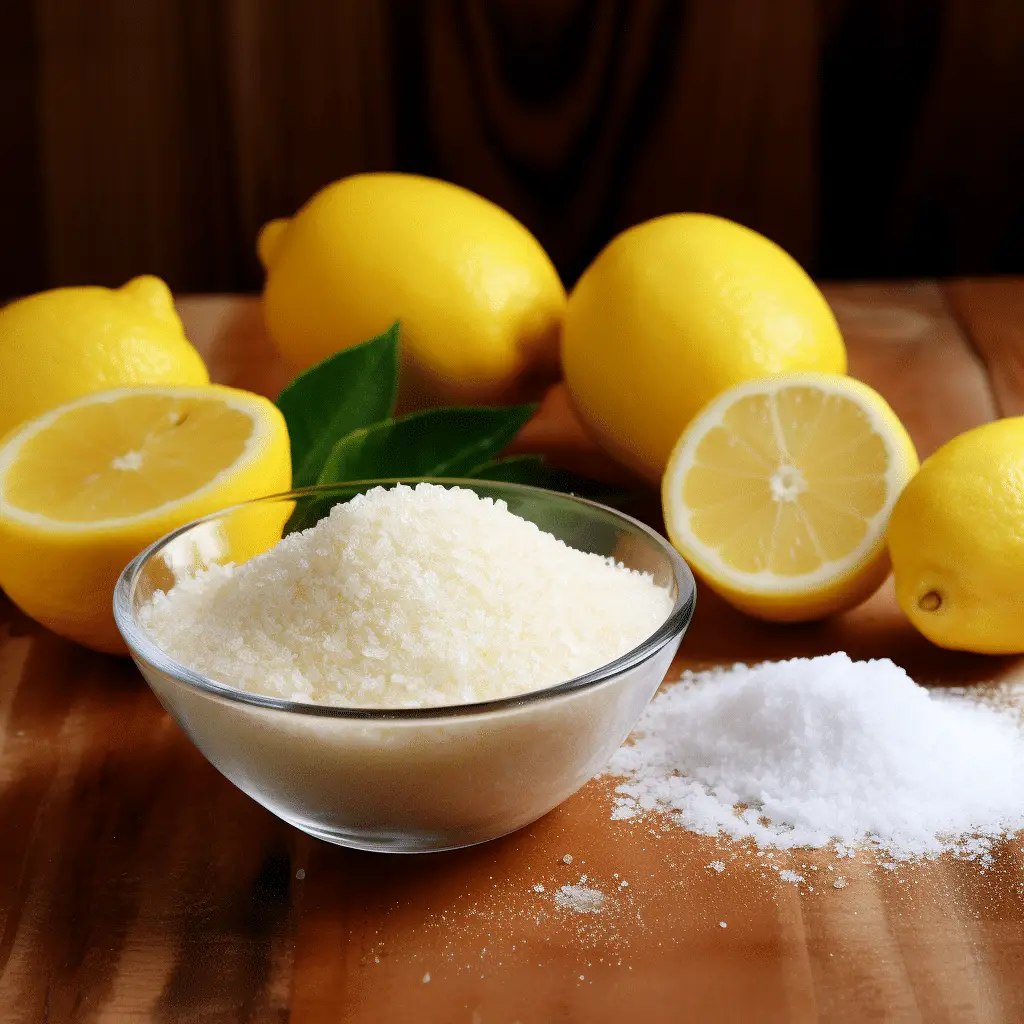Lemon Zest vs. Lemon Extract: Flavor and Benefits
It’s common to use Lemon zest and extract in cooking and baking, where they add a subtle flavor and color to dishes. But have you ever wondered how they differ? Does lemon zest have a stronger flavor than lemon extract? Or which should you prefer for your favorite dish?
While there isn’t a clear winner between the two, they each have their advantages. This article reviews both products in depth to decide which is suitable for your cooking needs.

Lemon Zest Vs Lemon Extract
What is Lemon Zest
Lemon zest is the outermost layer of lemon that contains the most aromatic oils and nutrients. It is often a bright yellow color, but can also be green depending on when and where it was harvested. The inner white pith is usually removed so that only what is considered the lemony goodness remains.
You can use lemon zest to add color to many foods, including soups, sauces, dressings, fresh fruit salads, and even desserts. Add a pinch of lemon zest to your dish, and you will instantly have more flavor. Don’t forget that it’s also great on cheeses like cheddar cheese or goat cheese!
However, the best way to use lemon zest is in your cooking. It has a delicate flavor that can enhance any dish or seasoning you choose to use it with. You can also use it for garnishing foods like steak or chicken before serving them; rub some lemon zest over the surface of your dish before putting it in the oven or grill.
Potential Health Benefits of Lemon Zest
Lemon zest is a delicious way to add great flavor to your dishes, but there is more to it than the taste. Lemon zest has many health benefits that make it one of the most important ingredients in your kitchen. Here are some of its potential benefits:
- Help with Weight Loss
Lemon zest contains pectin, which is known to help in weight loss. It contains high amounts of fiber and is rich in antioxidants, which help in reducing the risk of obesity and other related diseases. Furthermore, it also boosts your metabolism and reduces cravings for food.
- Prevents Cancer
Lemons have been found to have anti-cancer properties due to their high concentration of Vitamin C and other antioxidants that promote cell growth.
- Lemon Zest May Help Boost Immunity
Lemon has been used for centuries as a folk remedy for boosting immunity. It has anti-inflammatory properties that help reduce inflammation in the body. The citric acid found in lemon also acts as an antioxidant and helps prevent cell damage caused by free radicals.
- Lemon Zest Helps Prevent Heart Disease
The citrus flavonoids in lemon zest possess anti-platelet properties that prevent clots from forming on the walls of blood vessels. This property helps prevent heart diseases like atherosclerosis or the hardening of the arteries.
What is Lemon Extract
Lemon Zest vs Lemon Extract is a concentrated flavoring agent used in many foods and beverages. It’s not the same as lemon juice or zest, which tend to be more acidic. Instead, the lemon extract tends to be slightly more basic since it infuses lemon peel with alcohol (usually vodka or another neutral spirit).
Since ancient times, lemon extract has been used as a food preservative, flavoring agent, and source of vitamin C. It was first used to flavor drinks like lemonade or iced tea during colonial America when fresh lemons were hard to find.
However, in modern times, the lemon extract has become a popular ingredient in many foods such as baked goods, candies, salad dressings and even beverages like lemonades or smoothies. Below are more of its uses;
Flavoring – Today, the lemon extract is used as a flavoring agent for food and beverages. It adds a tart flavor to foods such as cakes, pies and other desserts. You can add lemon extract to hot drinks such as tea or coffee to give them an extra zesty flavor.
Cosmetics: Lemon extract effectively treats minor skin conditions such as dry skin or acne. The extract has been known to help reduce skin irritation caused by insect bites and stings. This makes it an excellent natural remedy for eczema and psoriasis.
Potential Health Benefits of Lemon Extract
Lemon Zest vs Lemon Extract extract has been used for centuries as a food preservative and preventive medicine for yeast infections. However, its health benefits go beyond that. Below are some;
- The lemon extract contains pectin, which helps with digestion and prevents bloating. It also has high levels of vitamin C, which can help fight off colds and the flu.
- The lemon extract can treat acne-related skin conditions such as rosacea because it contains antioxidants that can combat free radicals responsible for redness and irritation.
- The anti-ageing benefits of lemon extract include protection against sunburn, wrinkle reduction, improving skin elasticity and smoothness, and neutralizing free radicals — all this while helping to get rid of wrinkles.

How Lemon zest Compares with Lemon Extract
Lemon zest is the outermost part of the lemon peel that has a bitter taste, while the extract is made by extracting the oil from peels using alcohol. Ideally, lemon zest has been a key cooking ingredient since ancient times and is preferred over lemon extract due to its intense flavor and aroma.
All in all, both products have their advantages and disadvantages. You can use lemon zest in any recipe or dish where you want flavor. While you can only use the lemon extract for a few dishes, desserts, and drinks.
You may also find that some recipes call for both options; in this case, you need to read through your recipe carefully. To know how much each product will contribute to making it taste better.
Bottom Line
Both extracts and zests will yield a lemon flavor, depending on what you are making. Obviously, a spice zest will be more intense than an extract, but the overall character of the zest is more nuanced than a straight additive like an extract.






